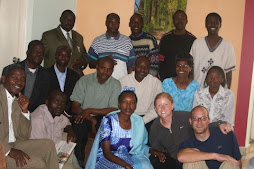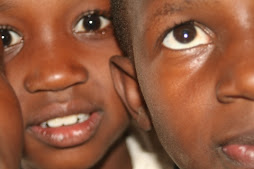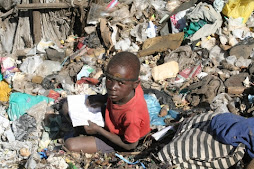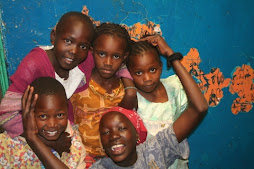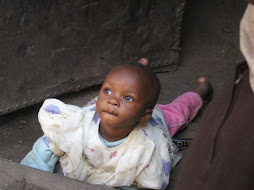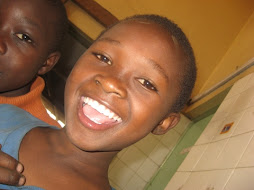Friends and family,
Joel and I were at a restaurant the other day and began to think about some of the aspects of Kenya that we are going to miss when we come back to the states, that we wish we could adopt as Americans....
~Kenyan Soda. It's GREAT for so many reasons.
It comes in a glass bottle, then it is returned to the factory, cleaned, and REUSED (without having to break down the glass completely to create a new bottle). Plus, it feels so much cooler to drink soda from a glass bottle :)
There is NO CORN SYRUP anywhere to be found in the drink, just good ol' natural sugar.
Stoney: It's a soda similar to sprite but made with ginger...it has way more kick than your typical ginger ale.
~Mango Juice: I wish I could describe just how wonderful mango juice is. It is so thick it tastes like a smoothie and it's to die for when it is served cold (baridi tafadhali!)
~Natural lawn mowers: Before the elections we took a trip to Lake Naivasha and on the way there, there were goats and donkeys tied up by ropes all along the highway. Their job was to keep the grass mowed (and I'm guessing to become someone's dinner down the line). Can you imagine if the millions of miles of America's highways and freeways were contracted out to goats, cows, and sheep, we would have a whole new market of free range meat :)
~Electrical Outlets with an On/Off switch: I'm not positive if this exists in the US or not, but most outlets in Kenya have a switch, providing you the option to turn the power off completely. I'm also not sure if it's an energy saver or not, but it's a nice idea none-the-less.
~Dukas: Forgive me if this is a repeat on the blog...but I am continually amazed by the 'duka'. About 25 meters away from our front door is a group of small shops that sell all of the basics: milk, bread, eggs, fruit & veggies, toilet paper, etc... This is also one of those things that is great for many reasons:
Local business/jobs: These dukas provide jobs for MANY people in this city.
No need to drive to buy the essentials
You can literally buy your 'daily bread' so everything is fresh and delicious
Builds community: instead of buying your food from 'no name sales cashier', you get to know the people and share in this life together
~People walking EVERYWHERE: We realize that most people walk simply because they do not own a car and possibly cannot afford public transportation, but going for a walk is never boring because there are so many people out and about. The Nakumatt by our house (a store the size of Fred Meyer or Target) painted the lines on the edges of their sidewalks when we first arrived in September and it is already needing another coat because there is so much foot traffic and it wore the paint off!
~Chai: Kenyan's love their chai. It is simple to make (just boil water, milk, and tea leaves together...add ginger if you like:). Most people take their chai with 2 spoonfuls of sugar, so it is a very sweet drink. Regardless of the heat outside, people are always up for a cup of chai. We like how it draws people together, you will never go to a guests house without taking a cup of chai :)
Of course there is a flip side...there are many things that we are also looking forward to coming back to...
~Root Beer
~Speedy Internet
~Talking a walk at night
~Good beer and wine
~Good Cheese
~Fat Free milk
~American Football
~ATM cards (everything is paid in cash here)
~our family and friends!!
On another note, please keep the pastors we are working with in your thoughts and prayers. CTM will be hosting a one day retreat to provide some time and space for the pastors in our network to relax as well as take a step back from all that has happened these past few months and to reflect and pray. We are hoping for this to also allow our pastors to heal. Thank you for being on this journey with us!
Peace,
mandy
